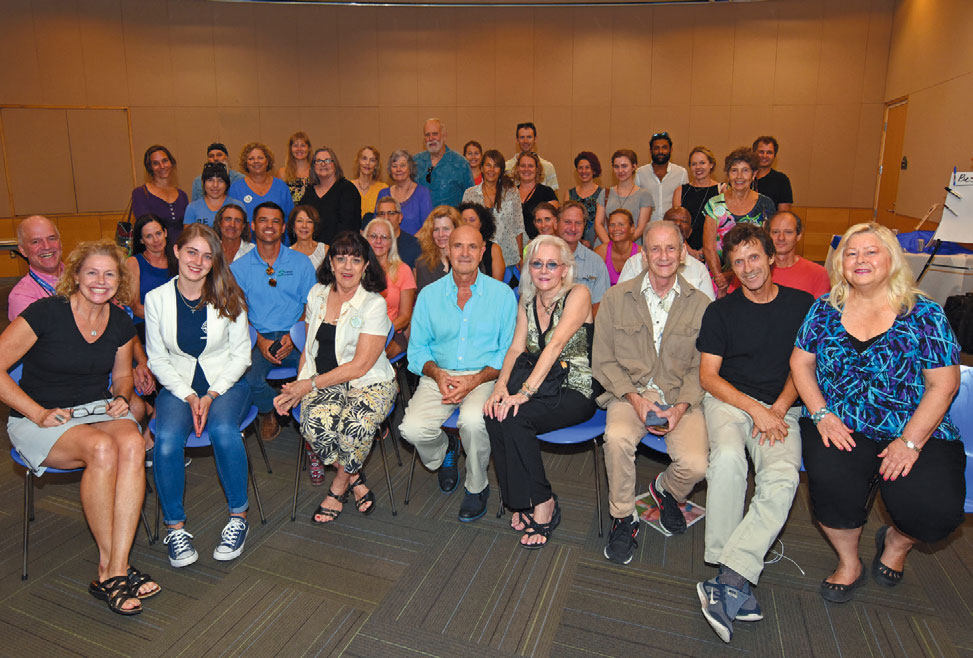Rethinking Plastics
Cat Dillard doesn’t leave home without her cup, spork, a paper or glass straw, reusable napkin, and to-go container. Jana Hoefling conducts squeeze tests in stores to easily locate the glass containers. These are just two examples of how the co-founders of Rethinking Plastics Sarasota (RPS) are doing their part to reduce the use of single-use plastics—the plastic items you use once then throw away.
“The average use of these items is something like 12 seconds,” says Dillard, “which is crazy.”
Just recently, headlines predict plastic in the ocean will triple in the next decade. And yet for many of us who live just a short drive from the #1 beach in America, the plastic pollution still feels so far away. An internet search presents photos and videos of plastic islands in remote world oceans and children in Third World countries bathing in rivers full of water bottles and yet our local beaches and water “seem” pristine.
But Hoefling and Dillard know different, which is why they were driven to do more.
Now, through RPS, they intend not just to expose the danger of single-use plastics in our community, but to push for municipal policy to do something about it.
“Our marine life is suffering drastically,” says Dillard. “We are so close to the water; if it’s litter, you are going to eventually find it in the bay through the watershed.”
The overuse of single-use plastics in our area hit home for Hoefling when she learned how it was affecting some of the youngest marine life.
“Mote Marine scientists found plastics in the intestinal tract of sea turtle hatchlings just off Sarasota’s coast,” says Hoefling. “This isn’t just Third World countries, this is our waterways. It’s a problem right here that people just don’t see!”
With the motto “recycling is not enough,” RPS has a three-pronged goal: educate individuals and businesses on the effect of single-use plastics on our environment; collaborate with local government to create policy banning its use; and research ways to reduce and eventually eliminate the use of these plastics.
In less than a year of existence, RPS has held eight general meetings. Its inaugural meeting drew 50 people. During the meetings they host educational and informative speakers and generate conversation with attendees about what they can do to help and what the RPS team—which now includes a third core member, Bruce Balck—is up to outside the meetings.
“We feel like we have some positive momentum, so we are working on different actions,” says Dillard.
One such action is collaborating with the City of Sarasota, a positive experience to date despite a state-level preemption that prevents local governments from regulating plastic.
“We have a great sustainability office here, but their hands are tied just like everybody else,” says Hoefling.
And while RPS’s long-term goal to impact City and County policy seems somewhat lofty given the preemption roadblock, for now the organization stays focused on an effort to collaborate with any interested restaurants and businesses as well as teach individuals how they can make immediate changes, starting with the Bad Five:
“Drink cups and straws, utensils, to-go containers, plastic bags, and water bottles,” lists Hoefling. “Those are five easy things for people to just quit.”
To stay up to date on Rethinking Plastics Sarasota, like them on Facebook or contact them through rethinkingplastics.org.
Next meeting: April 17, 6 to 7:15 p.m. at Selby Library. The speaker will be Barbara Lausche, JD, director of the Marine Policy Institute, Mote Marine Laboratory.





